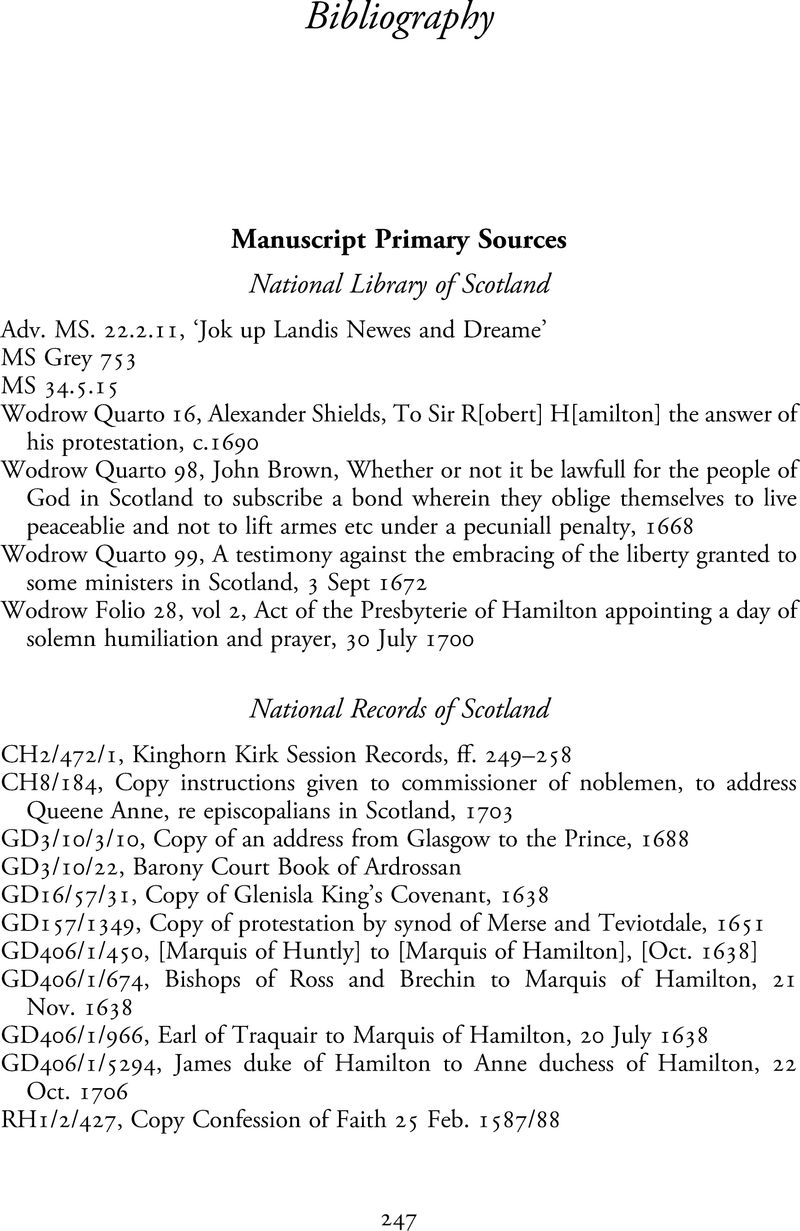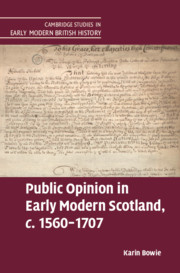Book contents
- Public Opinion in Early Modern Scotland, c.1560–1707
- Cambridge Studies in Early Modern British History
- Public Opinion in Early Modern Scotland, c.1560–1707
- Copyright page
- Contents
- Acknowledgements
- Abbreviations
- Introduction
- Chapter 1 Protestations
- Chapter 2 Petitions
- Chapter 3 Oaths
- Chapter 4 Public Communications
- Chapter 5 The Inclinations of the People
- Chapter 6 The Sense of the Nation
- Conclusions
- Bibliography
- Index
- References
Bibliography
Published online by Cambridge University Press: 21 December 2020
- Public Opinion in Early Modern Scotland, c.1560–1707
- Cambridge Studies in Early Modern British History
- Public Opinion in Early Modern Scotland, c.1560–1707
- Copyright page
- Contents
- Acknowledgements
- Abbreviations
- Introduction
- Chapter 1 Protestations
- Chapter 2 Petitions
- Chapter 3 Oaths
- Chapter 4 Public Communications
- Chapter 5 The Inclinations of the People
- Chapter 6 The Sense of the Nation
- Conclusions
- Bibliography
- Index
- References
Summary

- Type
- Chapter
- Information
- Public Opinion in Early Modern Scotland, c.1560–1707 , pp. 247 - 285Publisher: Cambridge University PressPrint publication year: 2020



